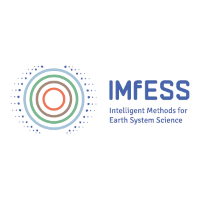Numerous tools are used to explore the earth. In addition to a wealth of measuring instruments, computer science plays a major role. Since a good insight into research should already be integrated in the teaching, the KPA supports the first steps for computer-based data analysis and tools that help with data acquisition.
Jupyter Hub
A Jupyter Hup (more information available from the coordinator) is available for teaching students about the common programming languages Python and R in relation to data analysis. The Jupyter Hub in general
- provides a common platform for data science and collaboration,
- represents a set of processes that together provide a Jupyter Notebook server for each person in a group and
- users access Jupyter Hub through a web browser by calling the server's IP address or domain name.
In more practical terms, this environment can be used for programming and presentation. In addition to the 'Code' mode, the 'Markdown' mode is also available within the individual Jupyter notebooks.
There are centralised directories for data and installations so that the administrator can easily provide a specific programming environment (notebook) for a group of users. This is offered to the user after logging into the launcher:
Beispiele und weitere Informationen hier.
AI computer
A computer specially purchased as an AI computer is physically located in the Department of Mathematics/Computer Science - Division of Computer Science. This has 2 Nvidia A40 cards, each with 48GB DDR6 memory, 10,752 CUDA cores, 336 tensor cores and 84 RT cores. This means that in particular effectively calculate neural networks, but also other projects, that process large amounts of data using CUDA (Compute Unified Device Architecture) also benefit from this.
Digital lab notebook
As part of the KPA, we plan to agree on an digital lab notebook that will be used in all Earth Science labs and thus in teaching. Among other things, the equipment infrastructure can thus be mapped across institutes. At the moment different providers are under discussion.
